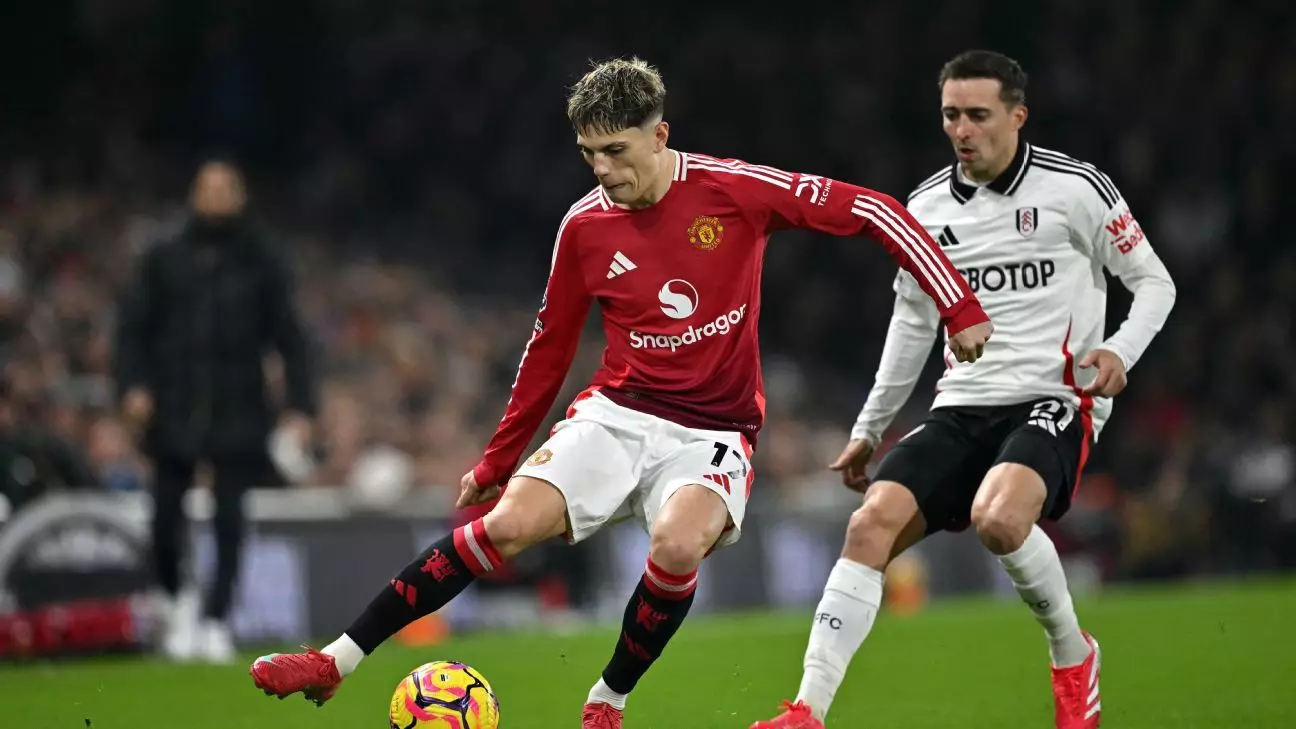Alejandro Garnacho’s journey within Manchester United has taken an uplifting turn, showcasing his intrinsic talent and determination. His recent performances have garnered attention and praise from coach Ruben Amorim, who acknowledges Garnacho’s transformative approach, which he asserts has significantly altered the dynamics of his game. Following a controversial omission from the squad that triumphed over Manchester City, where he and Marcus Rashford did not feature, Garnacho has been on a mission to reclaim his place. Surprisingly, while Rashford has been sidelined, Garnacho has emerged as a crucial component of the team.
In the aftermath of the City’s match, Garnacho’s commitment to improvement has become evident. Amorim highlighted this transformation, noting that the winger’s newfound attitude towards training and matches reflects a profound change in perspective. While a coach’s role is often to guide and influence, Amorim expresses that the primary credit belongs to Garnacho himself. The winger understood the demands of his position and responded by altering his preparation and mindset, revealing an essential aspect of professional sports: the capacity for change lies within the player.
This shift extended to Garnacho’s mental fortitude. As Amorim described it, Garnacho increasingly comprehends that the coaching style can differ and that demands are often for the player’s benefit. The recognition that growth requires adaptation is a vital lesson for young athletes, which Garnacho has embraced wholeheartedly. This adaptability not only benefits his performance but also enhances the overall morale and expectations within the squad.
While performances on the pitch are of paramount importance, external factors such as transfer speculation have emerged as significant discussions surrounding Garnacho’s future. Clubs like Napoli and Chelsea have been rumored to be interested, calling into question Manchester United’s commitment to keeping their promising young talent. It is essential to consider that the financial implications for clubs—particularly those navigating profit and sustainability pressures—often lead to difficult decisions regarding player retention.
Yet, the recent displays from Garnacho indicate that he has solidified his case for a future at United. Together with fellow academy product Kobbie Mainoo, who also impressed recently, they represent a compelling argument for nurturing young talents rather than parting ways with them. Amorim’s philosophy emphasizes the value of integrating more academy players into the first team, which aligns with broader trends across English football, where reliance on homegrown talent is increasingly being recognized as both a strategy for success and sustainability.
As Manchester United prepares for future challenges, the focus on developing players like Garnacho must remain a priority. Amorim’s insights underline a prevalent truth: young talents aren’t just prospects for sale; they are integral elements of a club’s identity and spirit. By championing their growth and integrating their abilities into the team’s framework, United can foster a self-sustaining model that combines skill with financial prudence. Consequently, Garnacho’s resurgence serves not only as a personal victory but as a beacon of hope for the academy system: that with the right mindset and support, the next generation can lead the resurgence of a historically storied club.


Leave a Reply